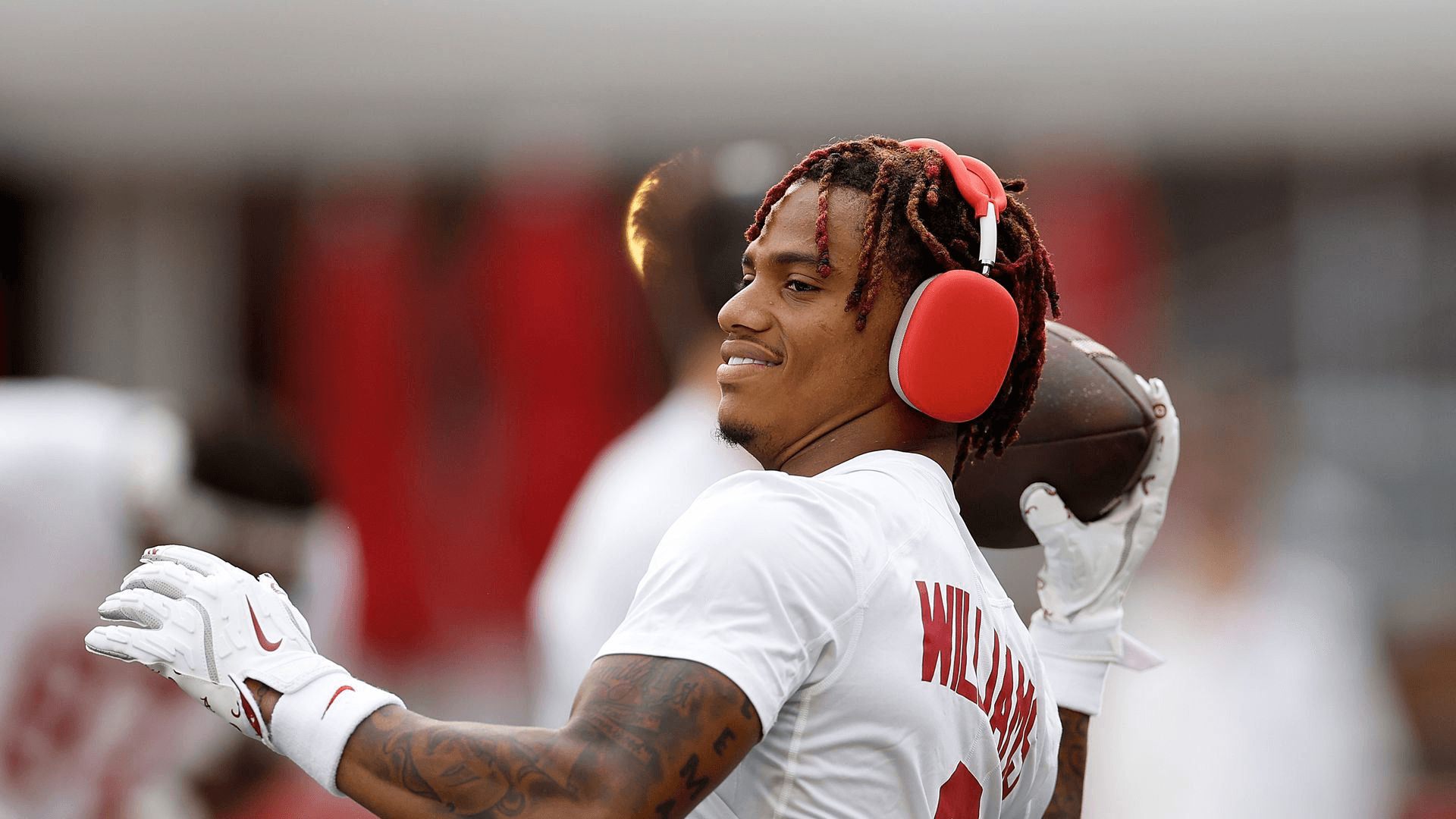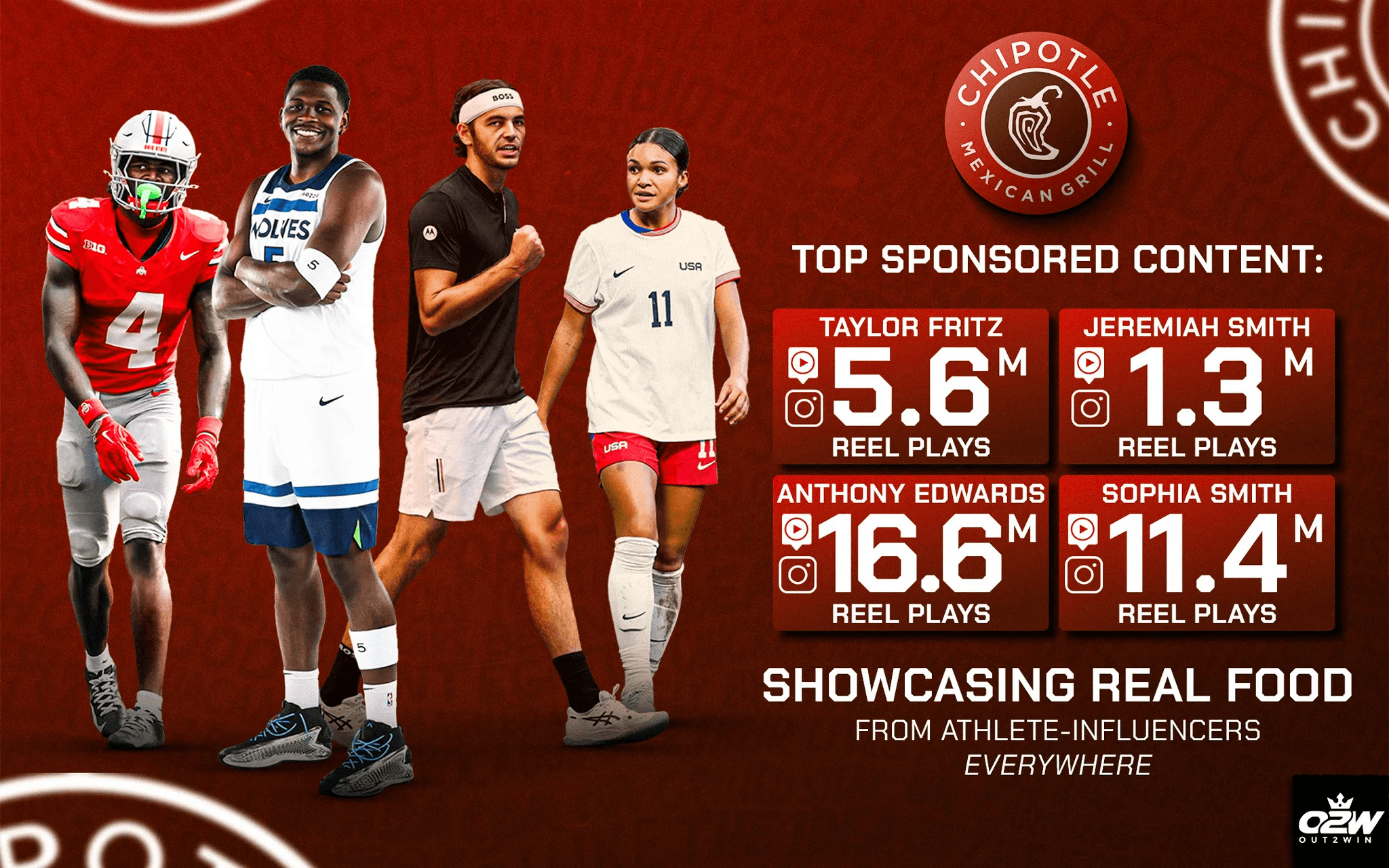Sponsored Content
Ryan Williams Teams Up with NASCAR: A Perfectly Executed Partnership
In the ever-evolving landscape of college football and NIL deals, strategic brand partnerships in sports are becoming increasingly crucial. The recent collaboration between Ryan Williams, Alabama's rising football star, and NASCAR stands out as a prime example of smart sports marketing. This blog explores how this partnership capitalized on Williams' sudden rise to fame and NASCAR's need for local engagement.

The Meteoric Rise of Ryan Williams
Ryan Williams' journey in college football is nothing short of remarkable:
Became the youngest player in college football this season after reclassifying
Started the season with 132K Instagram followers
Gained national attention with a game-winning catch against Georgia
Experienced an explosive social media growth of over 200K followers in just five days
Achieved a staggering 630% follower growth over the year
This rapid ascent made Williams an ideal candidate for brand partnerships, especially those looking to tap into the college athletes with brand deals trend.
NASCAR's Swift Action
NASCAR demonstrated agility in sports marketing by quickly securing an NIL deal with Williams. The partnership aimed to promote ticket sales for their playoff event in Talladega, AL. This move showcases several key aspects of successful brand partnerships in sports:
Timeliness: NASCAR capitalized on Williams' sudden popularity spike
Relevance: The Talladega event's proximity to Alabama made Williams a perfect local ambassador
Audience Alignment: 34% of Williams' followers are from Alabama, providing a targeted local audience
Why This Partnership Works
This partnership works for several compelling reasons. First, Williams' strong connection to Alabama resonates deeply with NASCAR's target audience for the Talladega event, creating a local appeal that enhances engagement. As the youngest player in college football, Williams brings a fresh and youthful energy to NASCAR, potentially attracting a new demographic of fans.
This collaboration offers mutual benefits: while NASCAR gains exposure to a younger, local audience, Williams enjoys the prestige of being associated with a major national brand. The partnership also allows for creative content that seamlessly blends the excitement of college football with the thrill of NASCAR racing. Furthermore, the timing of the collaboration aligns perfectly with both Williams' rising fame and NASCAR's playoff season, maximizing visibility for both parties involved.
Lessons for Sports Marketing Professionals
Act Quickly: NASCAR's swift action in securing the deal with Williams demonstrates the importance of agility in sports marketing.
Leverage Local Connections: The partnership's focus on local appeal shows the value of targeted, region-specific marketing strategies.
Cross-Sport Collaborations: This partnership illustrates the potential of collaborations between different sports for mutual benefit.
Data-Driven Decisions: NASCAR's use of Williams' follower demographics highlights the importance of data in influencer selection.
Capitalize on Momentum: The timing of the deal, right after Williams' high-profile play, maximizes the partnership's impact.
The Future of NIL Deals in College Football
This partnership between Ryan Williams and NASCAR provides insights into the future of NIL deals in college football:
Increased emphasis on local and regional partnerships
More cross-sport collaborations
Faster turnaround times for deals to capitalize on viral moments
Greater use of data analytics in selecting athlete partners
Potential for long-term relationships that grow with an athlete's career
Sports Marketing Masterclass
The Ryan Williams-NASCAR partnership serves as a textbook example of effective sports marketing in the NIL era. It demonstrates how brands can leverage the rapidly changing landscape of college football and NIL to create mutually beneficial partnerships. For sports marketers, this case study offers valuable lessons in agility, local targeting, and cross-sport collaboration.
As the world of college athletes with brand deals continues to evolve, partnerships like this will likely become more common and more sophisticated. Brands that can identify rising stars quickly, understand their audience demographics, and create relevant, timely collaborations will be well-positioned to succeed in this exciting new era of sports marketing.
Oct 10, 2024
Corey Bruno
Here are some related blog posts you might be interested in reading


